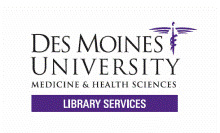Federalism and the Value of Institutional Experience During a National Disaster: Identifying Determinants of Rapid Emergency Medicaid Waiver Adoption During the Covid-19 Pandemic
ORCID
https://orcid.org/0000-0002-0375-8090
Document Type
Article
Abstract
Section 1135 emergency waivers were designed as tools for policy-makers to rapidly increase health system capacity during a disaster. Granting regulatory, administrative, or payment-model flexibilities during the covid-19 pandemic, states may be better equipped for an influx of hospitalizations. One month passed before every state adopted a covid-19 waiver and no research investigated why states adopted waivers sooner than others. This study utilizes a Parametric (Gamma) Time-to-Event design to construct a Contextual, Institutional, Political, External, and a combined Integrated model to identify determinants of speedy waiver request. States with Section 1135 precedent in previous disasters submitted requests to CMS more quickly than states without prior experience. In the Integrated Model, four indicators were significantly associated with a shorter time to request: history of a previous waiver (0.7248, p <0.01), state health expenditures (0.9994, p <0.001), a democratic governor (0.6794, p <0.05), and a new 1135 Waiver request in the region (0.8424, p <0.001). Within the U.S. federalist system, states with greater institutional experience and fiscal capacity appeared to act most quickly to expand health system flexibility during the peak of the pandemic’s uncertainty. Such state variation in ability to respond rapidly to an emergency may confound attempts for equity in this pandemic and beyond.
Publication Date
1-1-2022
Citation Information
Semprini, Jason, "Federalism and the Value of Institutional Experience During a National Disaster: Identifying Determinants of Rapid Emergency Medicaid Waiver Adoption During the Covid-19 Pandemic" (2022). Faculty Works Public Health. 56.
https://digitalcommons.dmu.edu/fac_ph/56

